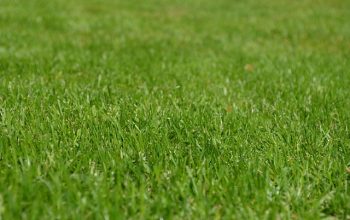Yard waste, like grass clippings and leaves, presents environmental challenges in urban areas due to methane emissions from landfills. Effective strategies such as composting, mulch utilization, and local recycling programs reduce landfill contributions, enhance soil health, promote biodiversity, and support a circular economy. Composting kitchen and garden scraps minimizes landfill waste and reduces methane emissions, while yard waste can be used as mulch for moisture retention and nutrient release. Local governments can encourage organic waste reduction through education and enhanced recycling programs, leading to environmental preservation, reduced greenhouse gas emissions, cost savings, and a greener future.
In today’s world, understanding and reducing organic waste, particularly yard waste, is crucial for fostering sustainable communities. This article explores effective strategies to tackle this growing environmental concern. From composting as a natural recycling process to creative reuse of garden residue and food scraps, we provide insights into making significant cuts in yard waste removal. Additionally, we delve into community-level disposal practices and long-term benefits, highlighting the substantial environmental and economic savings achievable through organic waste reduction.
- Understanding Yard Waste: The Impact and Importance of Reduction
- Composting: A Natural Recycling Process for Organic Materials
- Creative Ways to Reuse Garden Residue and Food Scraps
- Implementing Effective Disposal Practices for a Greener Community
- Long-term Benefits: Environmental and Economic Savings from Organic Waste Reduction
Understanding Yard Waste: The Impact and Importance of Reduction

Yard waste, often overlooked, significantly contributes to environmental challenges, particularly in urban areas. It includes organic materials like grass clippings, leaves, and garden trimmings, which, if not managed properly, can lead to substantial amounts ending up in landfills. This has environmental implications due to the release of methane gas, a potent greenhouse contributor, as organic waste decomposes anaerobically.
Reducing yard waste is both an environmentally conscious choice and an efficient approach to sustainable living. Simple practices such as composting at home, utilizing green waste for mulch, or participating in local recycling programs can make a significant difference. These strategies not only divert materials from landfills but also enrich soil health, promote biodiversity, and foster a circular economy, ultimately contributing to a greener and more sustainable future.
Composting: A Natural Recycling Process for Organic Materials

Composting is a natural recycling process that transforms organic materials, such as food scraps and yard waste, into a nutrient-rich soil amendment known as compost. This eco-friendly practice plays a significant role in reducing organic waste sent to landfills, contributing to both environmental conservation and sustainable gardening. By diverting organic matter from the trash, composting helps decrease methane emissions, a potent greenhouse gas produced by decomposing organics in landfills.
When organic materials are collected and composted, they undergo a controlled decomposition process facilitated by microorganisms, leading to the creation of humus—a dark, crumbly substance that enhances soil structure, improves water retention, and provides essential nutrients for plant growth. Many communities offer yard waste removal and recycling programs that collect organic material from residents’ homes and transform it into compost, making this sustainable practice more accessible than ever.
Creative Ways to Reuse Garden Residue and Food Scraps

Many homeowners often view garden residue and food scraps as mere waste, destined for the bin or yard waste removal services. However, there are creative ways to reuse and recycle these organic materials, significantly reducing environmental impact and potentially enhancing your garden’s health. For instance, compost piles can be a game-changer in turning kitchen and garden scraps into nutrient-rich soil amendments. This natural process not only minimizes landfill contributions but also fosters a thriving ecosystem within your own backyard.
Beyond composting, there are numerous applications for these organic byproducts. Garden residue, such as dried leaves and grass clippings, can be used as mulch to retain moisture, suppress weeds, and gradually release essential nutrients back into the soil. Food scraps, too, can be transformed into rich biogas through anaerobic digestion, a process that produces renewable energy while reducing waste. Embracing these innovative strategies for yard waste removal and recycling not only contributes to environmental sustainability but also promotes a more circular economy.
Implementing Effective Disposal Practices for a Greener Community

In many communities, organic waste reduction strategies are not only an environmental imperative but also a key step towards creating a greener future. Implementing effective disposal practices is crucial in this endeavor. One significant aspect is promoting and enhancing yard waste removal and recycling programs. By encouraging residents to separate organic materials from general refuse, local governments can significantly reduce the amount of waste ending up in landfills. This simple yet powerful change leads to less greenhouse gas emissions and conserves valuable resources.
Moreover, integrating composting initiatives into these practices further enriches the soil, promotes sustainable gardening, and reduces the demand for synthetic fertilizers. Educating community members on proper waste segregation and the benefits of recycling can foster a culture of environmental stewardship. These collective actions contribute to a healthier ecosystem and a more sustainable living environment for all residents.
Long-term Benefits: Environmental and Economic Savings from Organic Waste Reduction

Reducing organic waste offers significant long-term benefits, both environmentally and economically. By implementing strategies like yard waste removal and recycling, communities can significantly reduce their carbon footprint. Organic waste, when decomposed in landfills, releases methane, a potent greenhouse gas that contributes to climate change. Preventing this through proper waste management practices helps mitigate global warming effects.
Economically, organic waste reduction can lead to substantial savings. Yard waste recycling programs, for instance, can divert tons of material from landfills, lowering disposal costs. Additionally, the compost generated from yard and food scraps can enrich soil, reducing the need for synthetic fertilizers in agriculture. This not only saves money but also fosters a more sustainable and resilient local economy.
By adopting organic waste reduction strategies, such as composting, creative reuse, and effective disposal practices, we can significantly decrease yard waste removal while promoting environmental and economic sustainability. These practices not only mitigate the impact of organic materials in landfills but also foster a greener community. Implementing these strategies is a crucial step towards a more sustainable future, where every residue has a purpose and every action contributes to a healthier planet.



